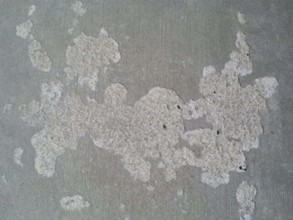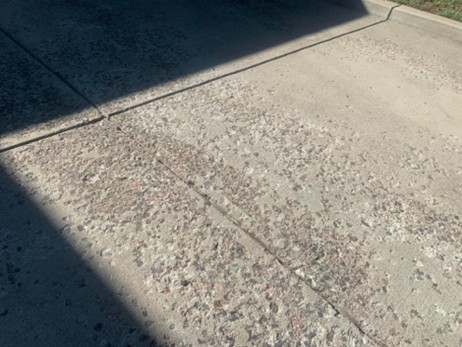Icemelter and new concrete (12 months old!)
What Causes the Chipping and Spalling of Concrete in Winter
How to Repair Chipped and Spalled Concrete Caused by Winter Weather
How to Protect Flagstone and Pavers when using Ice melt

A question we frequently get is “if Icemelter is safe to apply on new concrete?” The answer is no, as newly poured concrete needs time to cure and settle. The application of icemelter on concrete less than 12 months old may weaken the concrete structure making it more susceptible to damage in the future.

Winter brings some unique challenges, among them is the risk of damage to your concrete. Understanding the types of damage that can occur and how to prevent them is something every property owner should know. This bulletin will give you some basic guidelines and understanding around winter concrete issues.

Concrete is one of the most durable and widely used building materials in the world. However, even this strong material can deteriorate when exposed to harsh winter conditions. One of the most common issues seen during cold weather is the chipping and spalling of concrete surfaces.

Winter can be harsh on concrete surfaces. Freezing temperatures, expansion and contraction from the freeze-thaw-cycle, and constant moisture exposure can lead to chipping and spalling—where the surface layer of concrete flakes, peels, or breaks away. While this type of damage is common, it’s not just a cosmetic problem; if left unrepaired, spalling can allow water and chemicals to penetrate deeper, weakening the structure over time.

When using ice melt on flagstone and pavers, it's important to take steps to protect the surfaces from potential damage, as many ice melts can be harsh on natural stone and concrete over time. Here are some tips to help you protect your flagstone and pavers:

Everybody wants perfect long lasting concrete surfaces, so having a better understanding of strength and weakness of concrete is a great place to start. This article from the Portland Cement Association, one of the leading concrete authorities, will walk the reader through each surface defect and discuss in detail, its cause, its prevention and how to repair the defect.

The use of Magnesium Chloride, also sometimes referred to as MAG, as an ice melter to melt the ice on concrete sidewalks, driveways or roads can be deadly. Why take the risk? There is much scientific information and evidence on the concrete damaging effects of magnesium chloride.